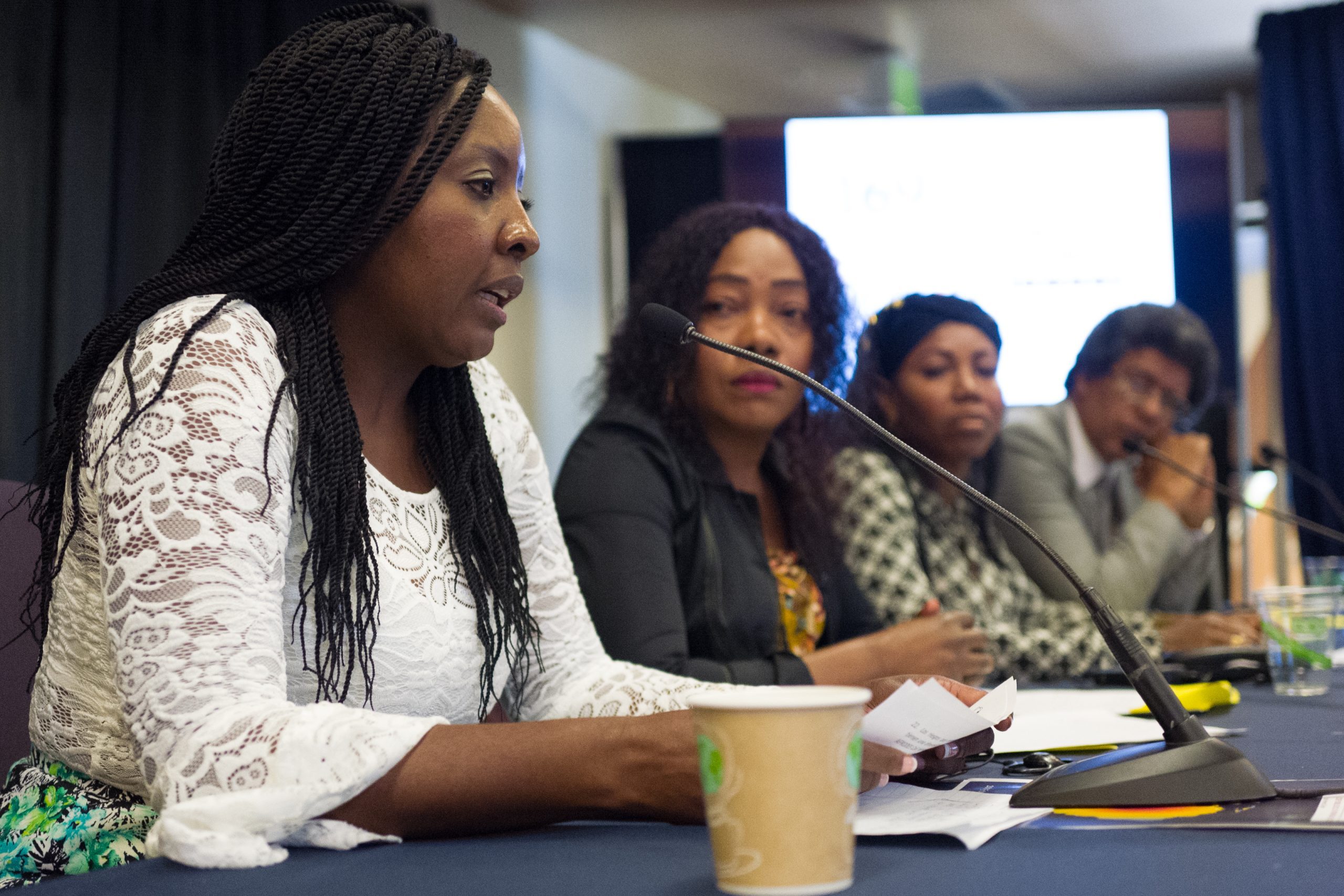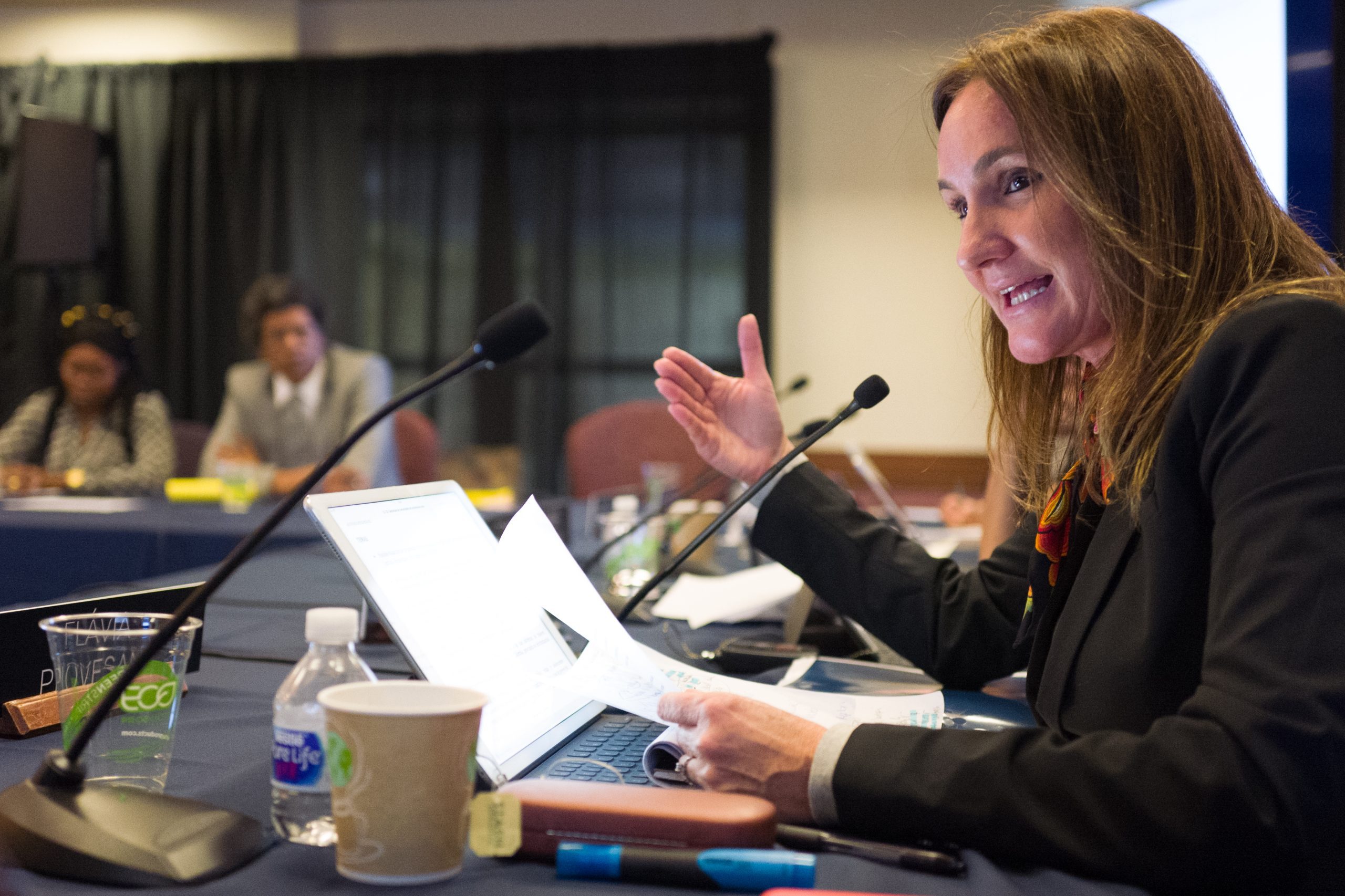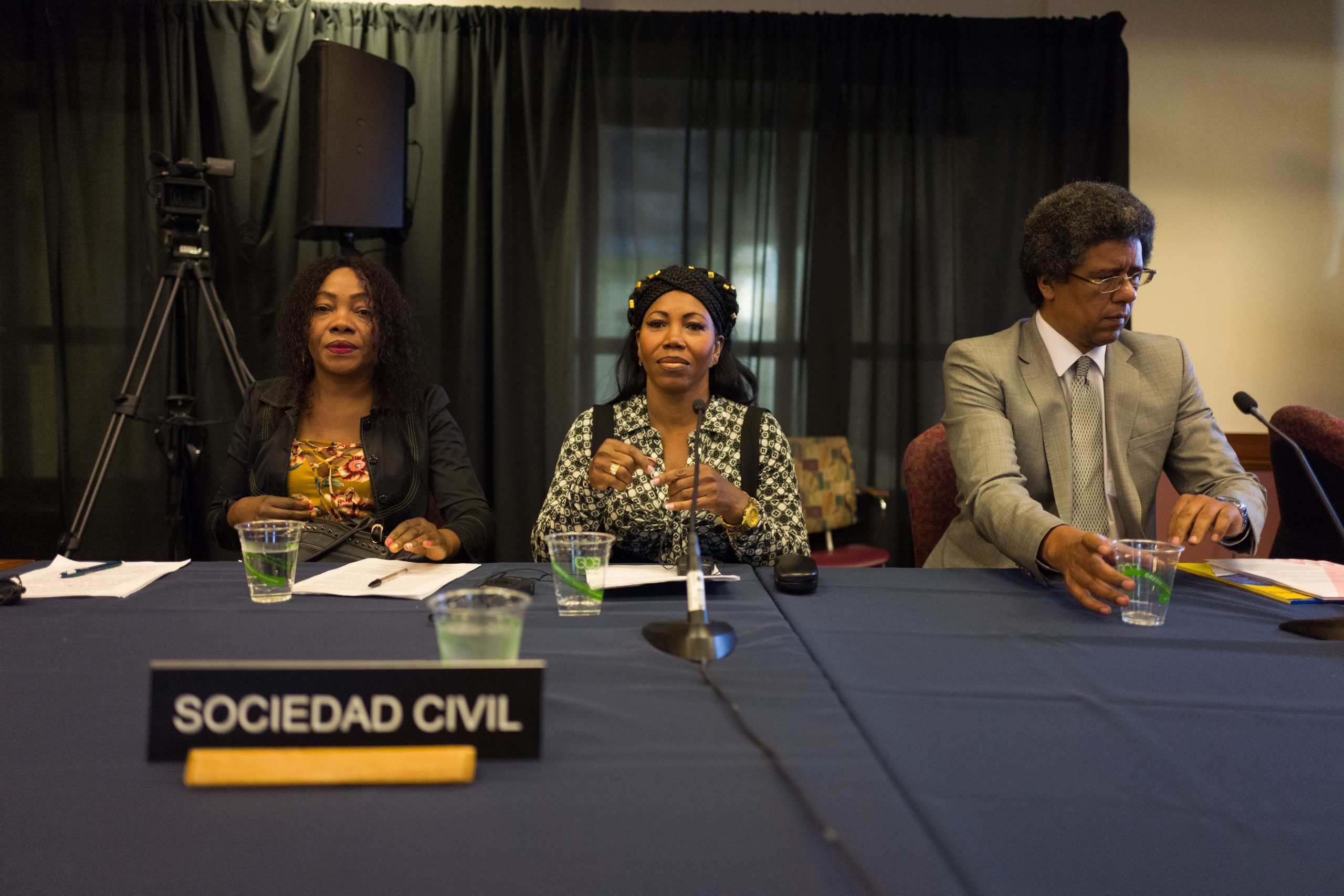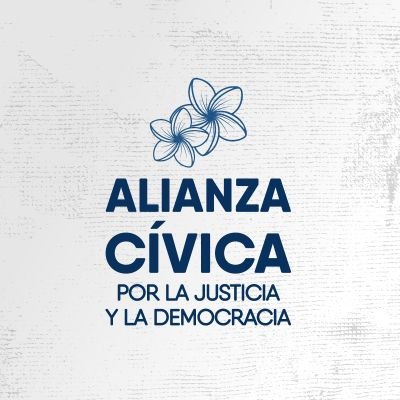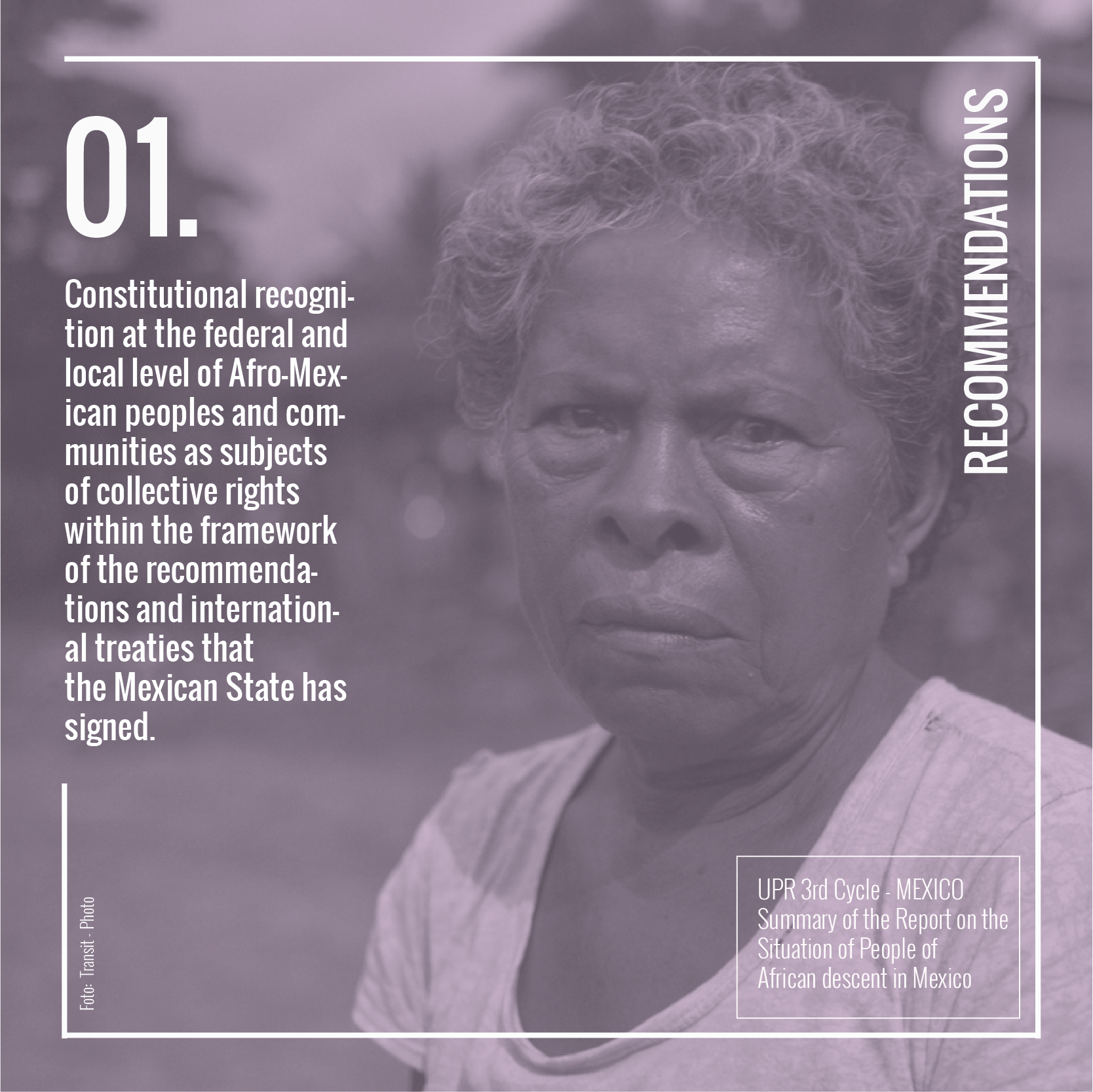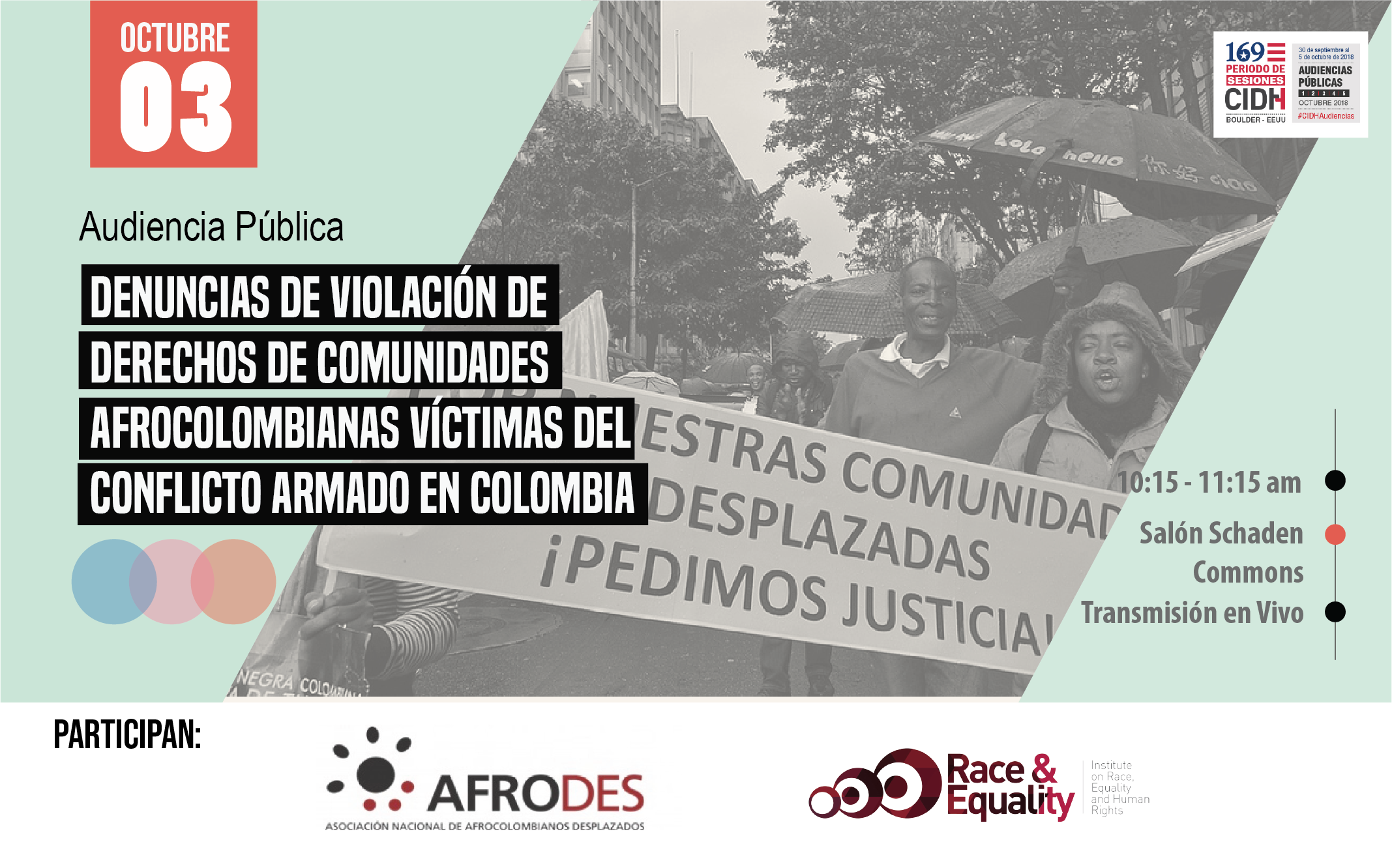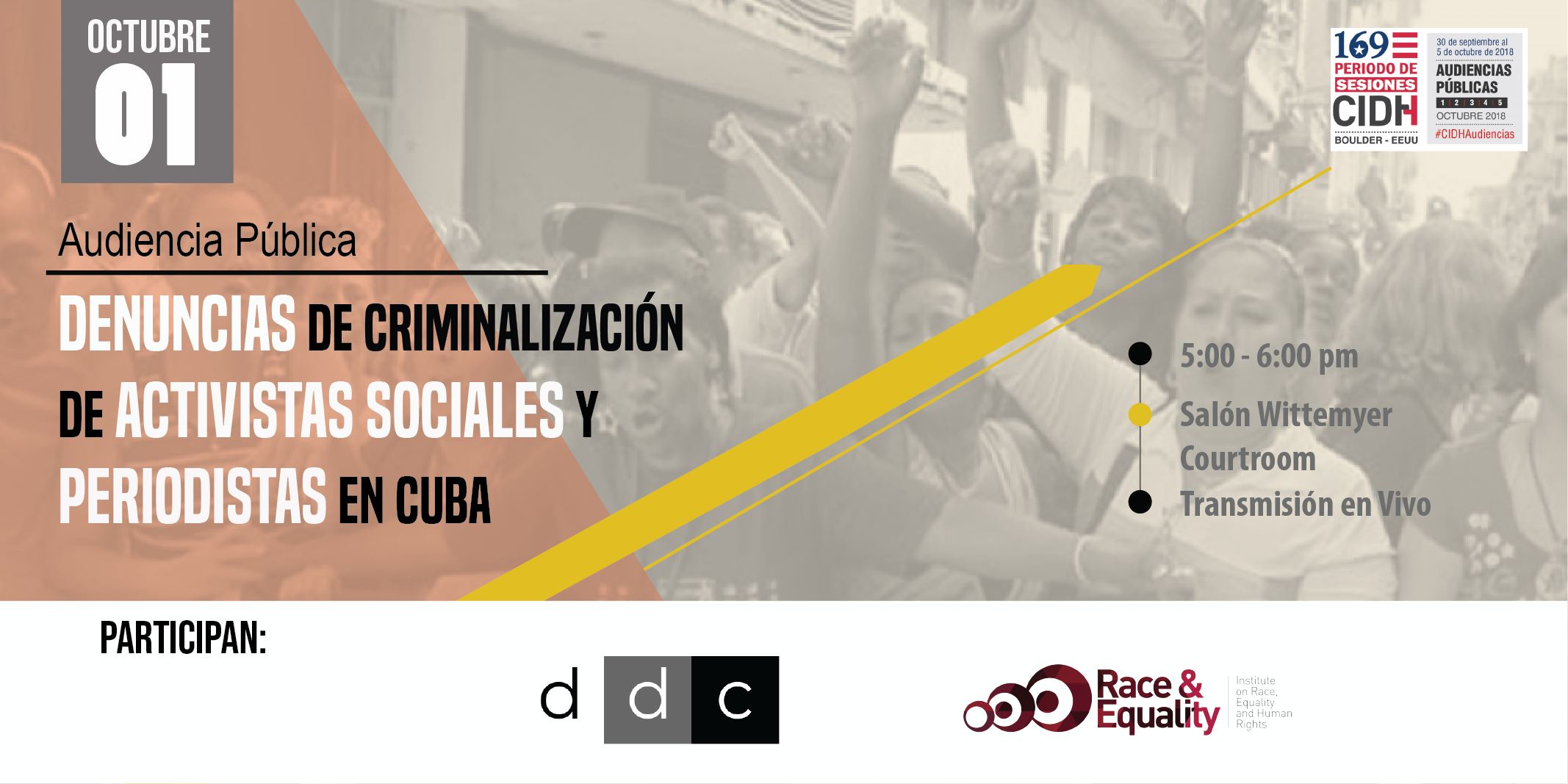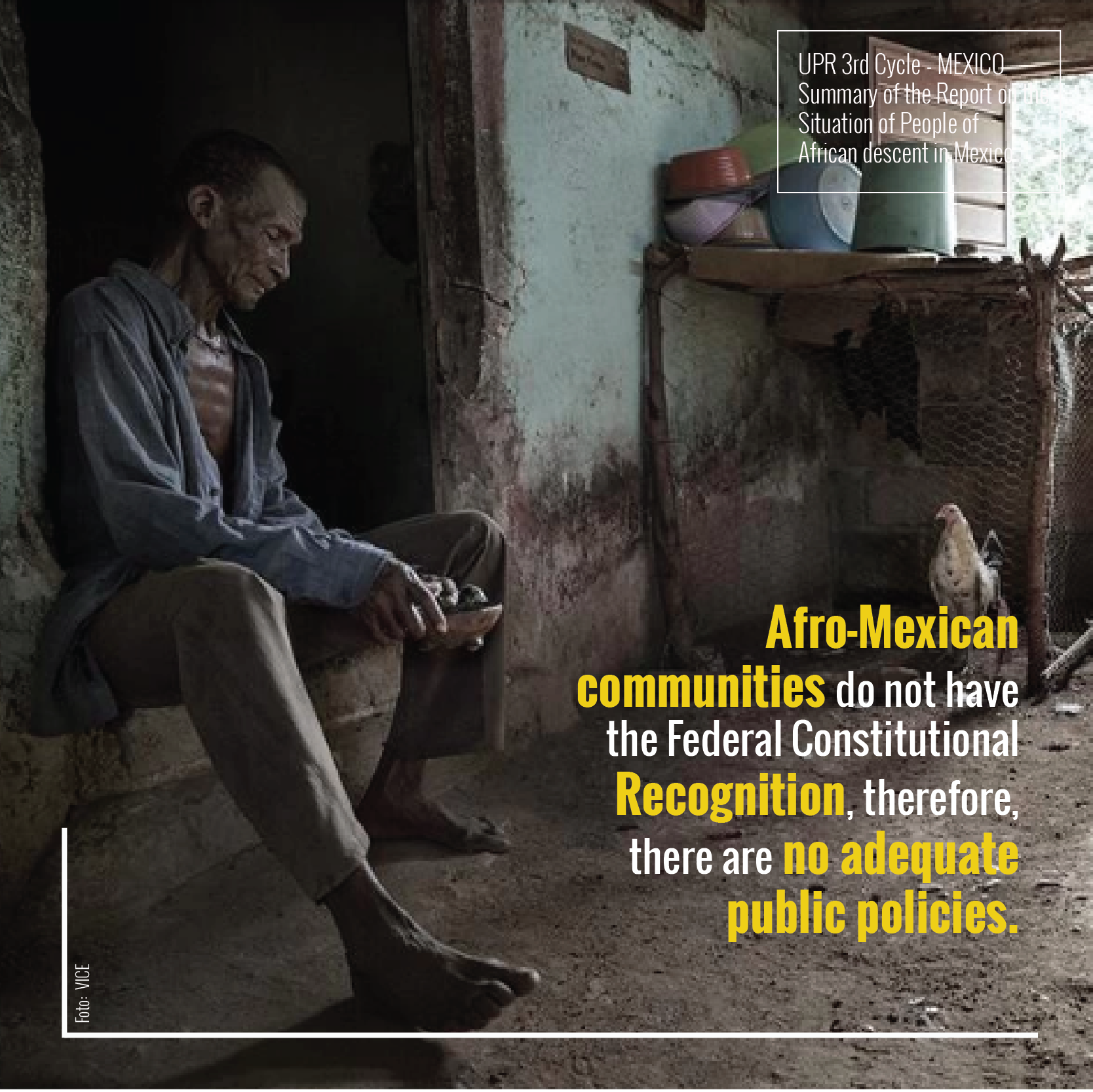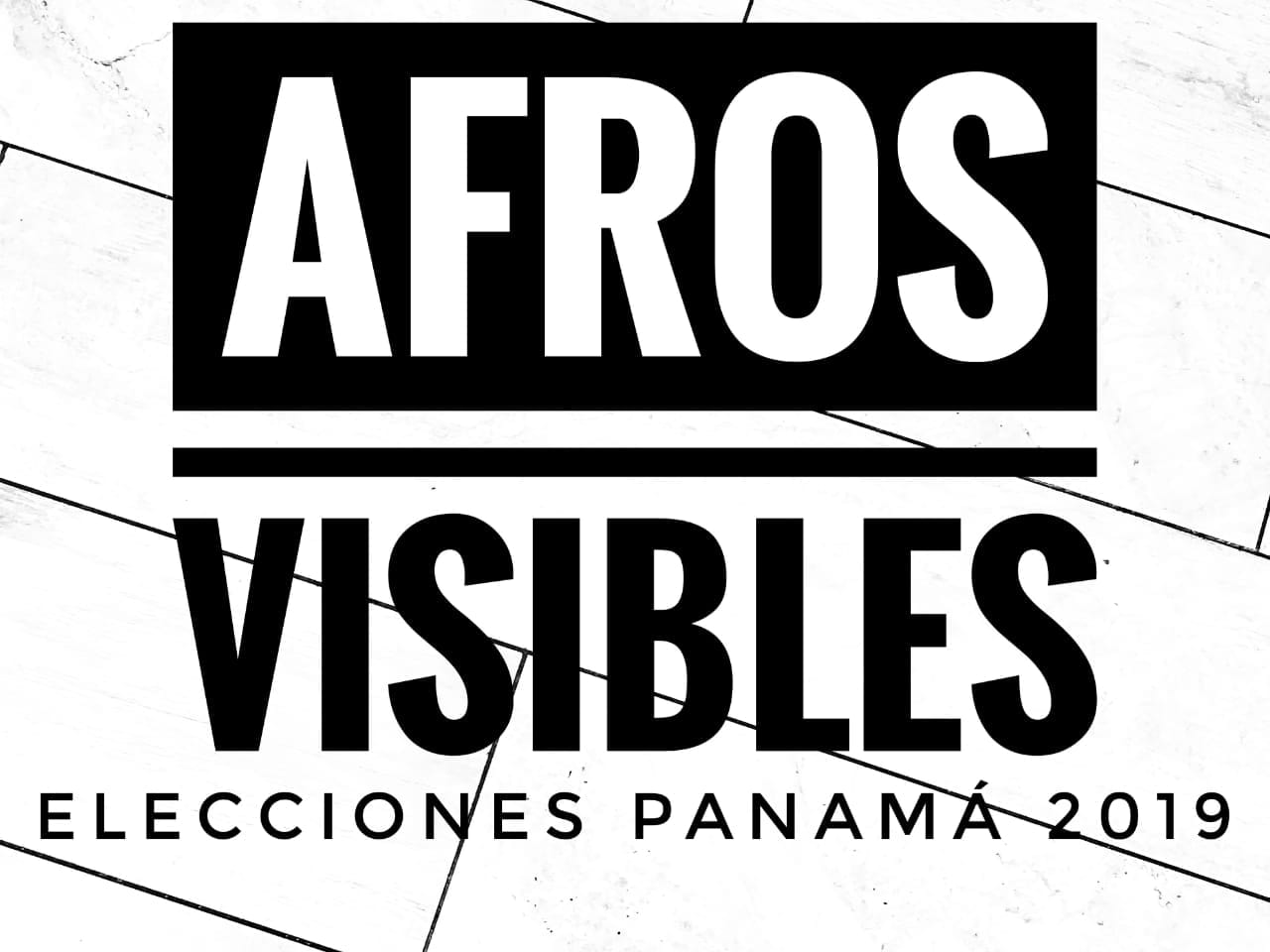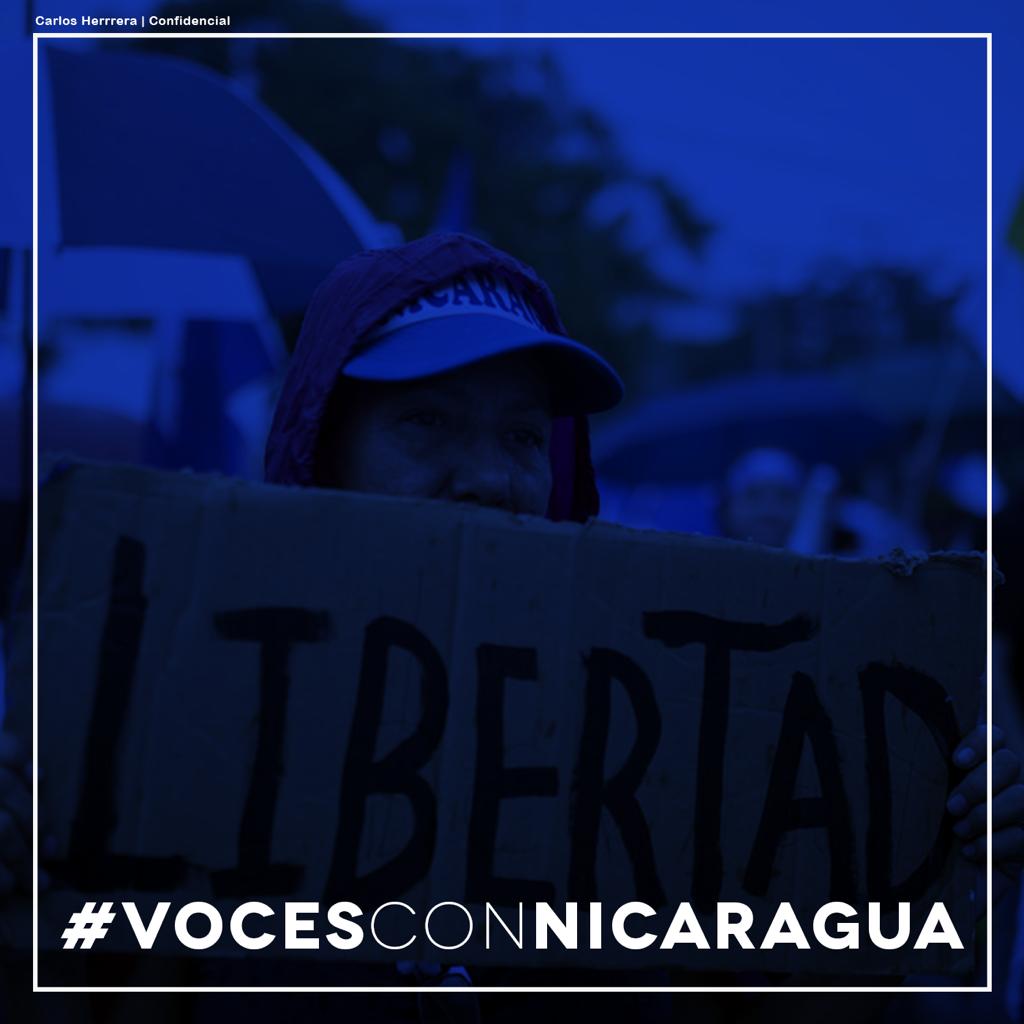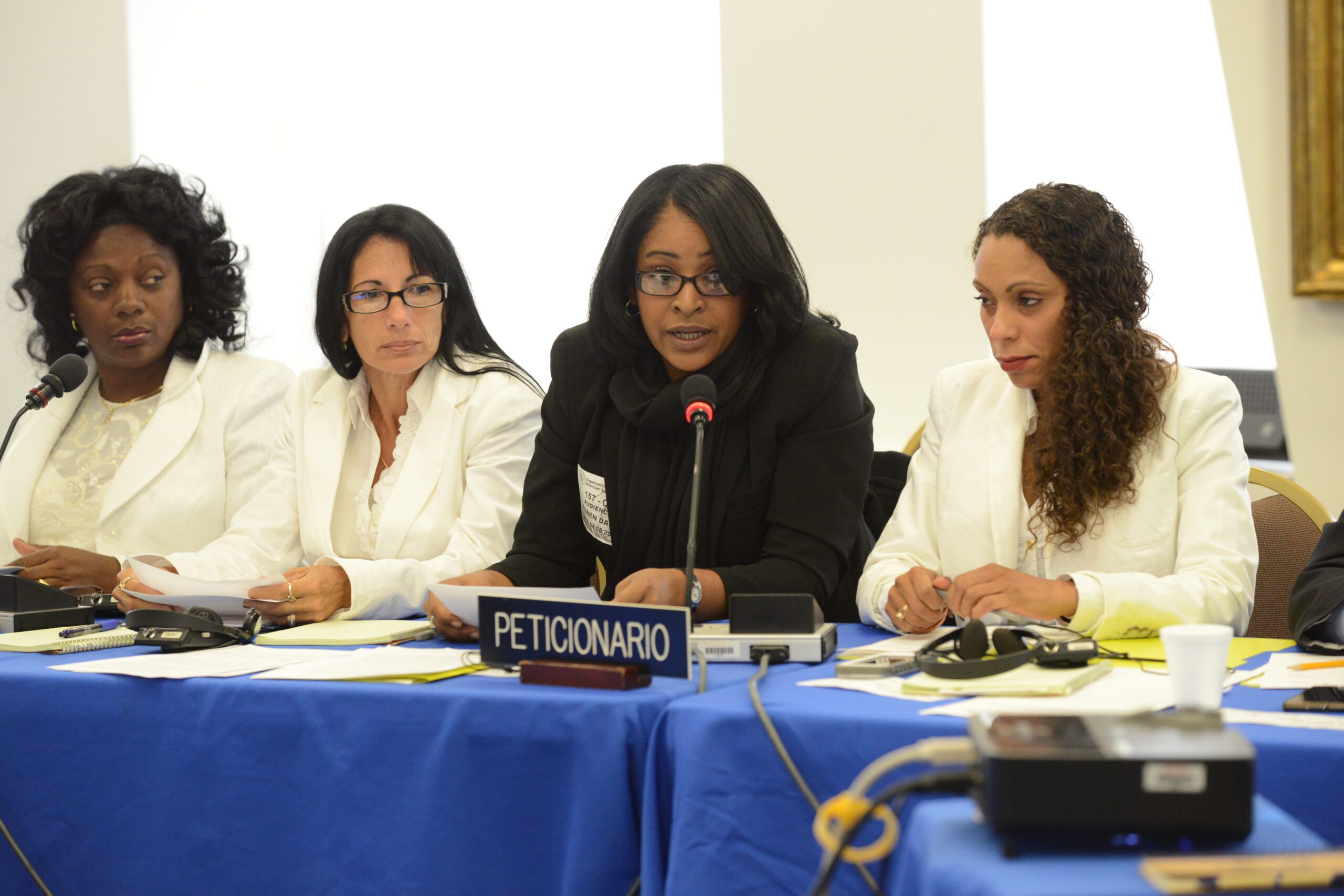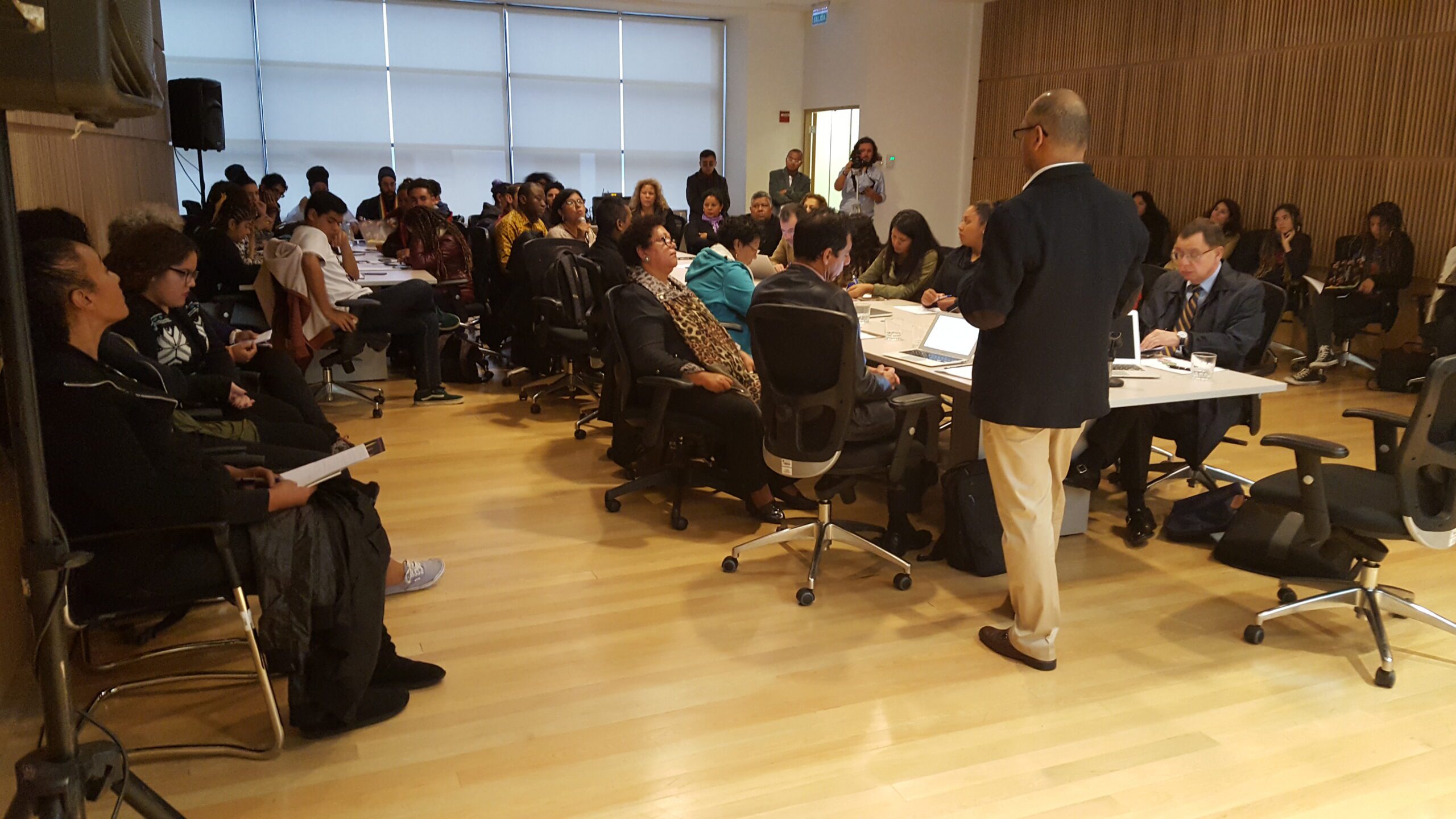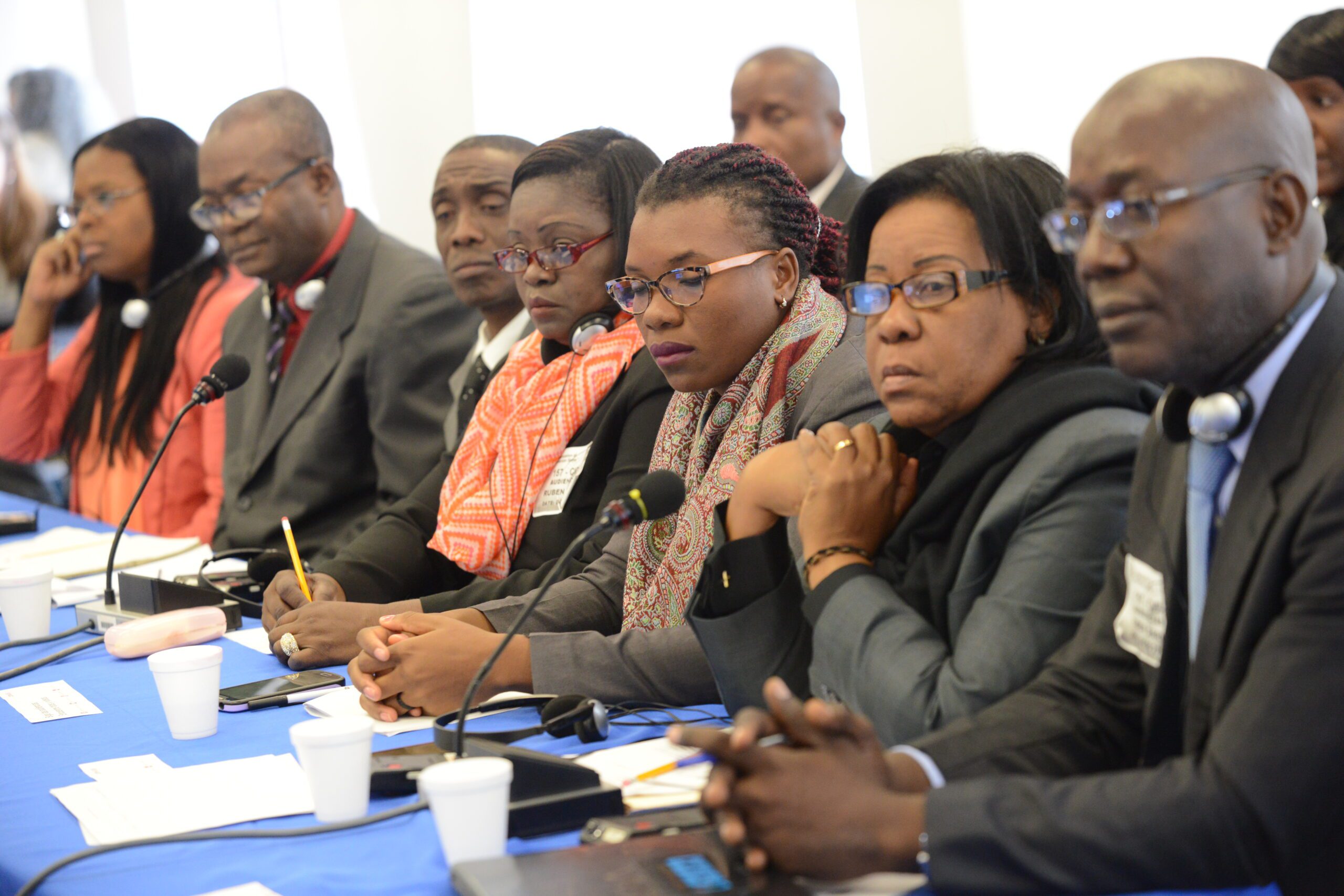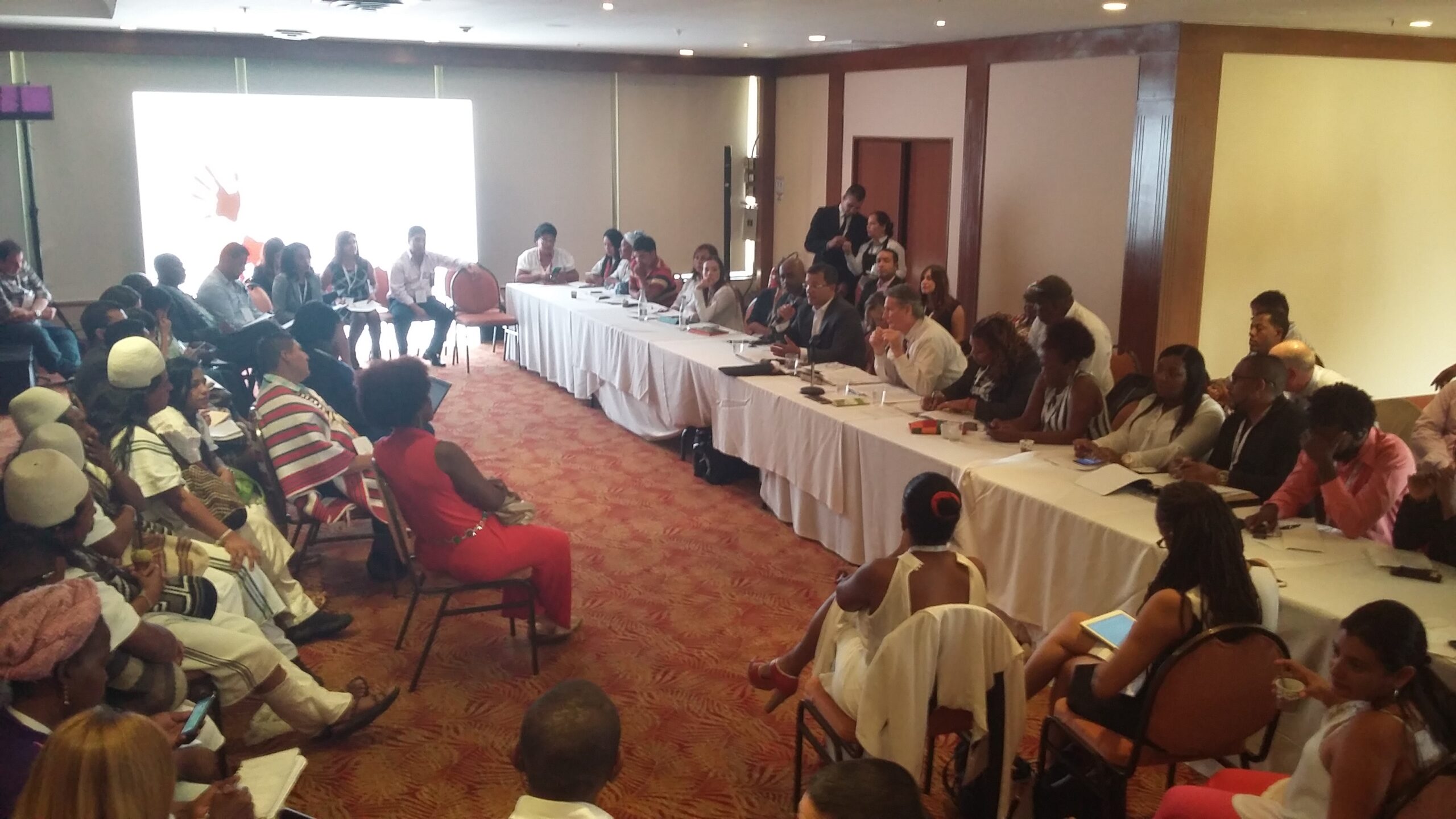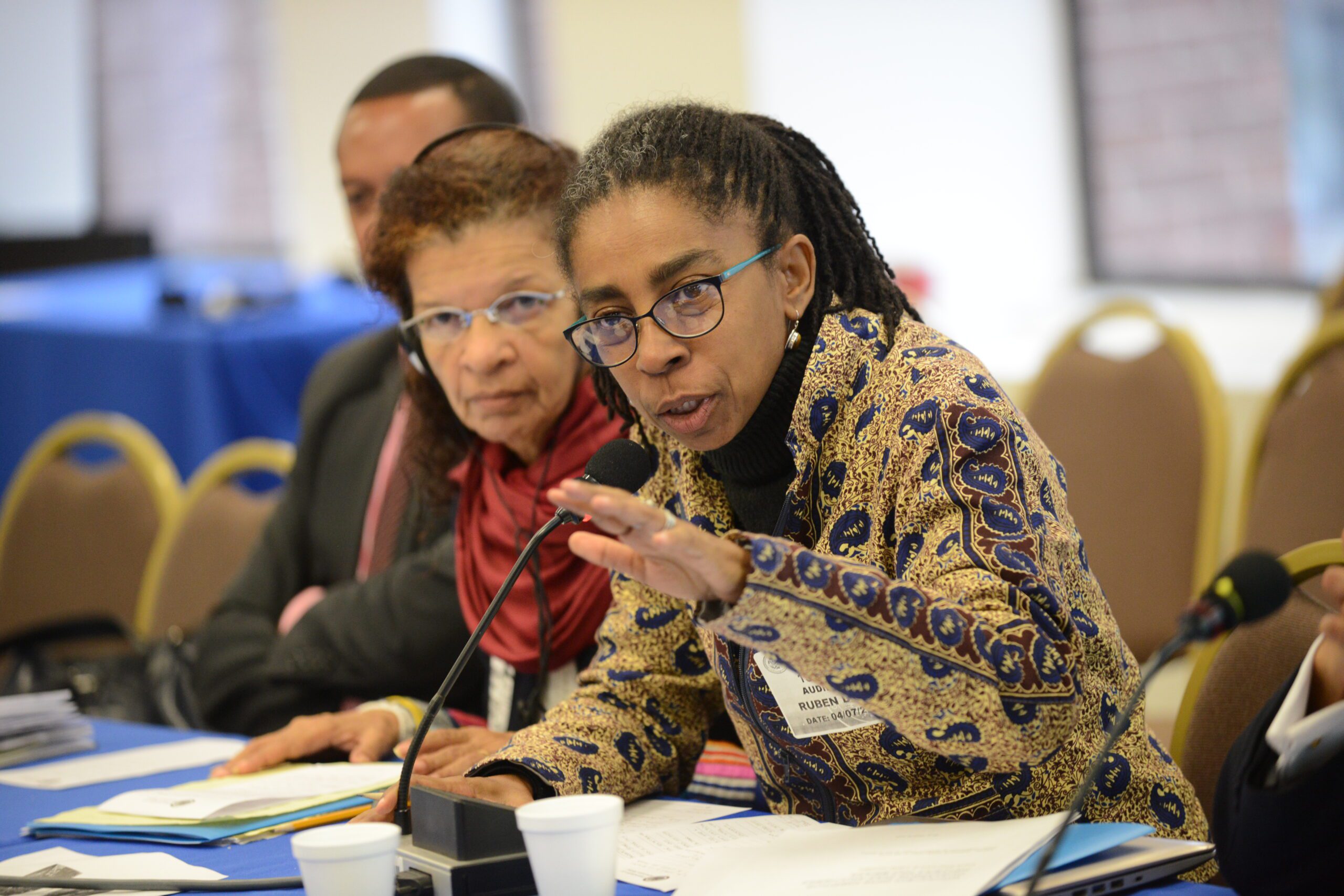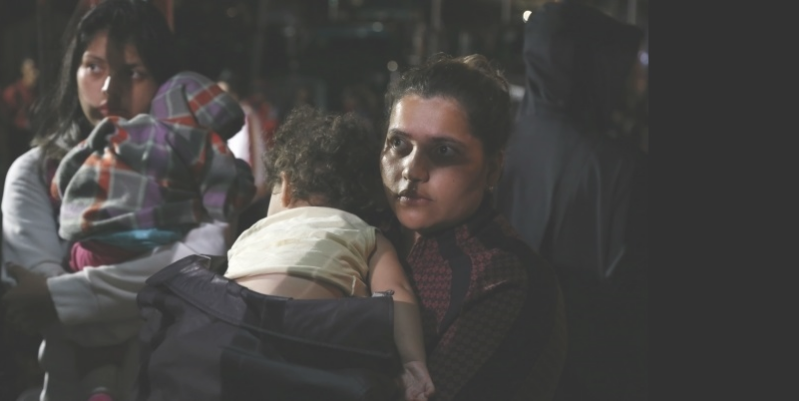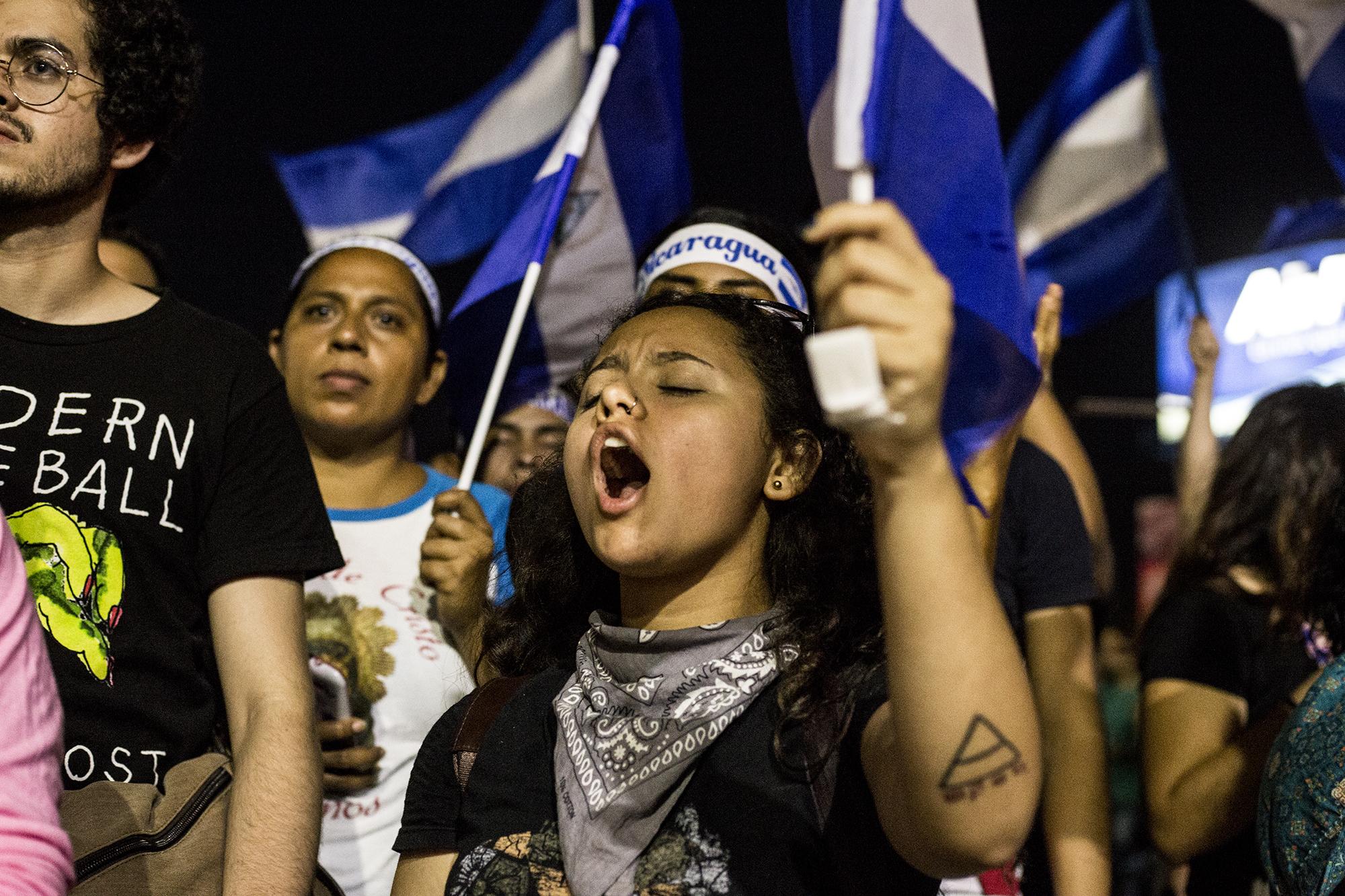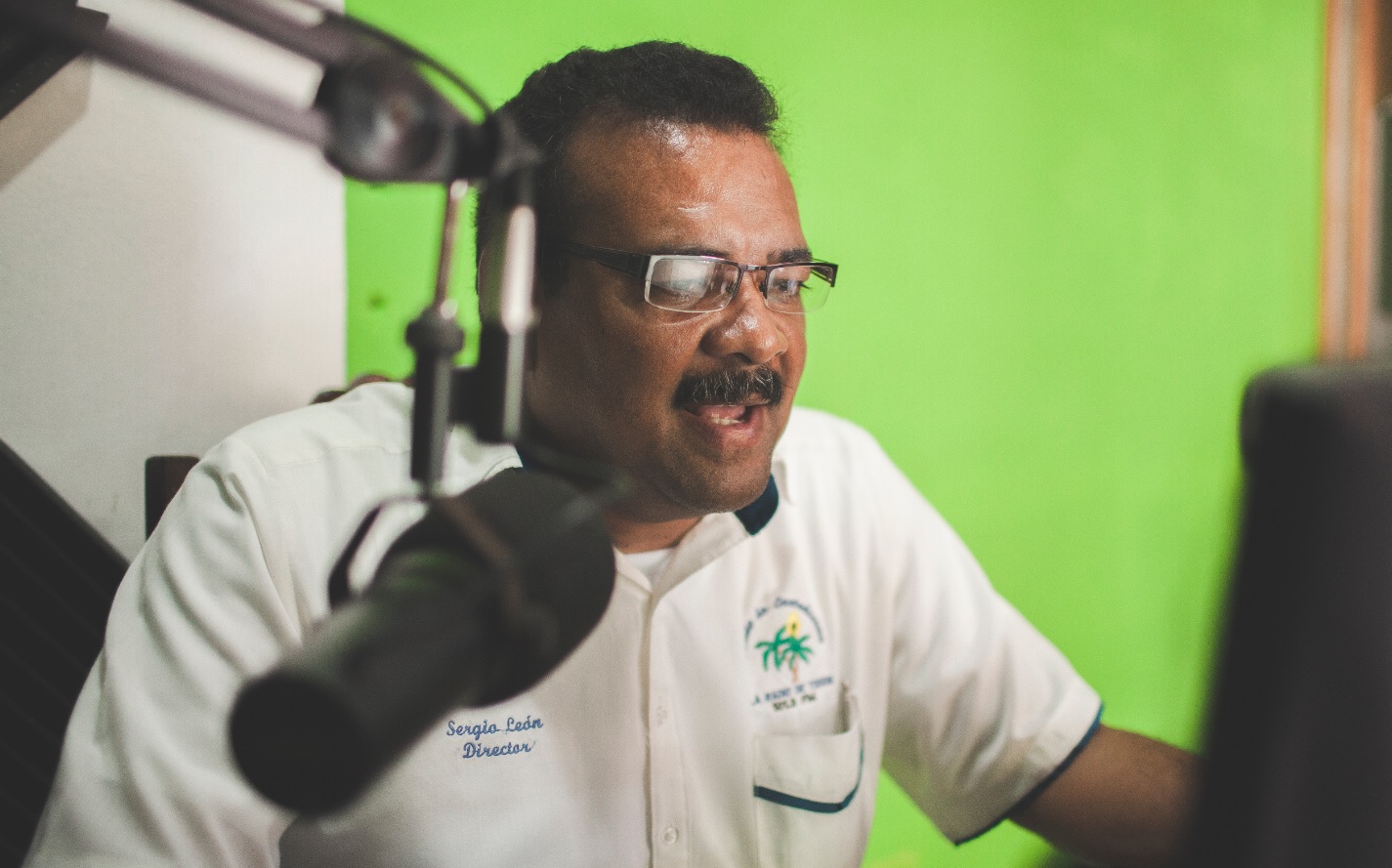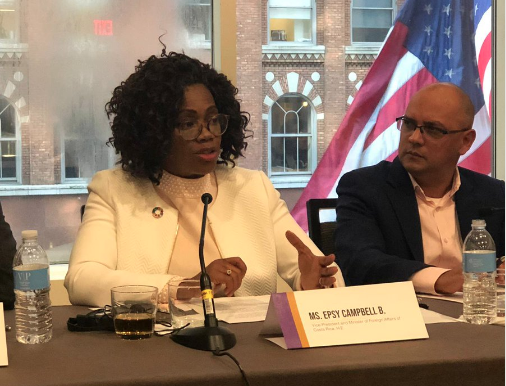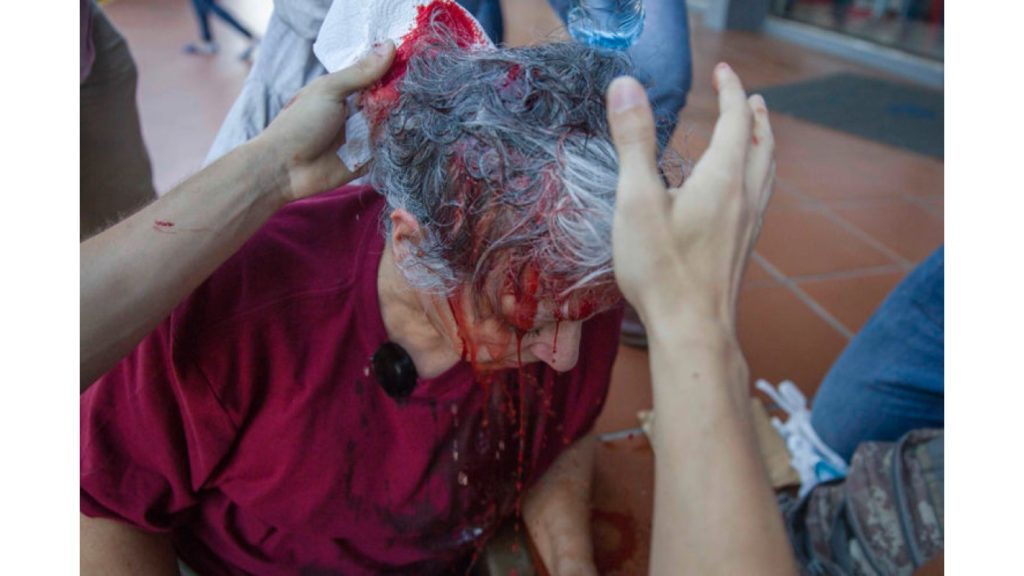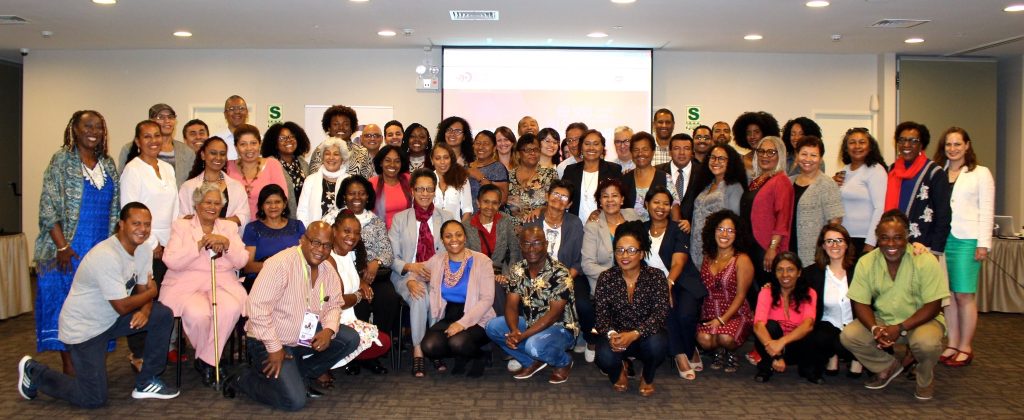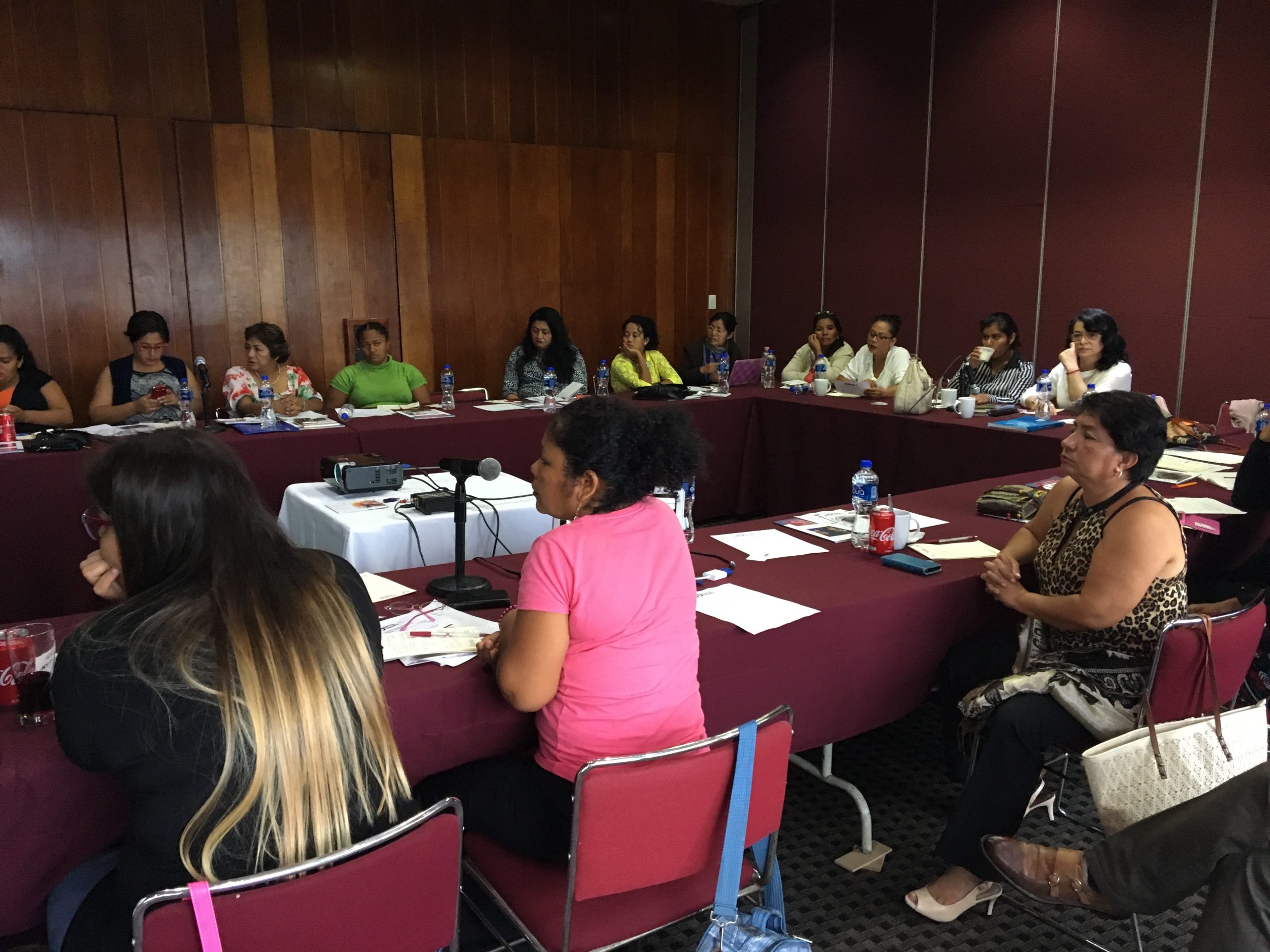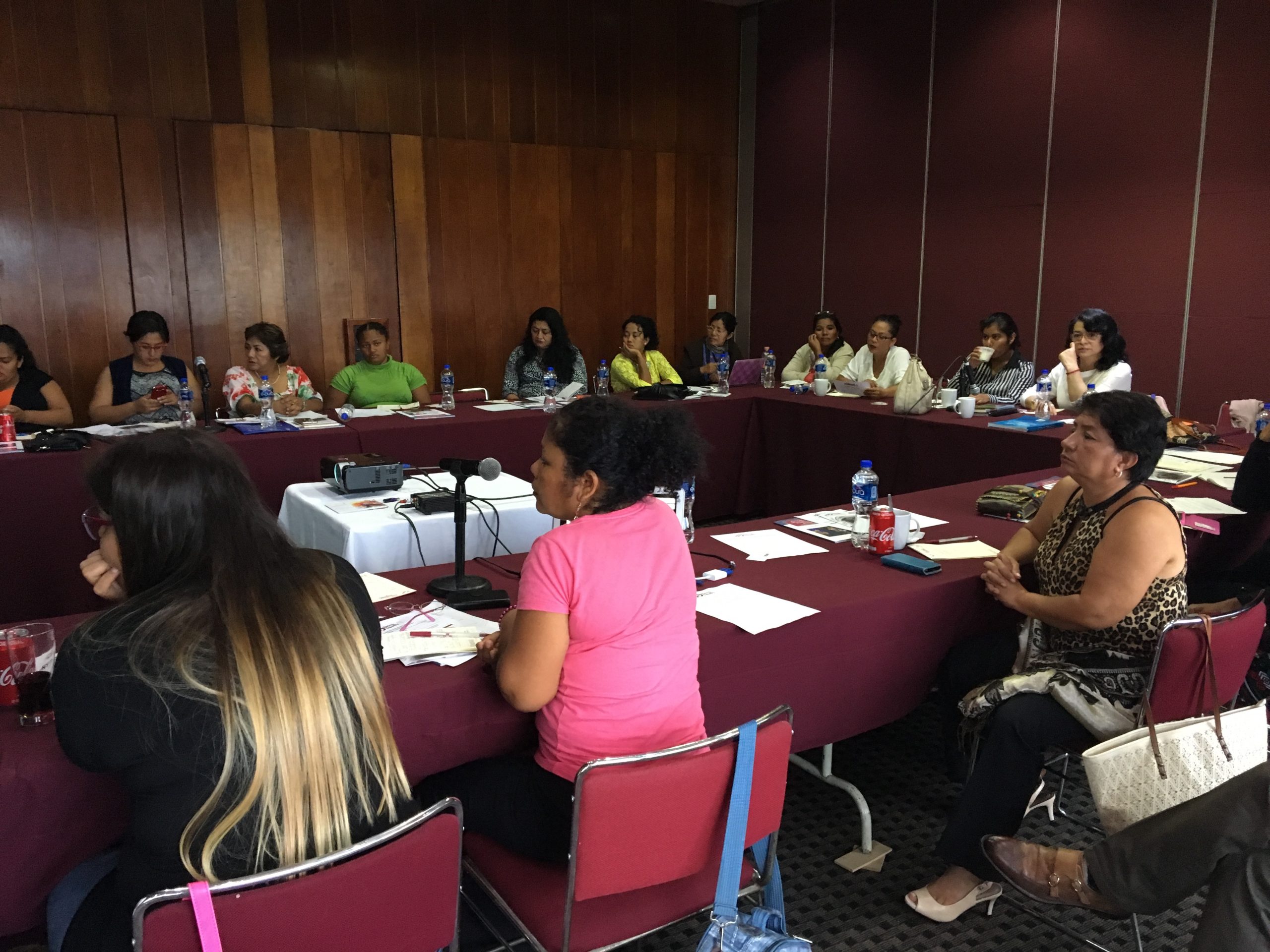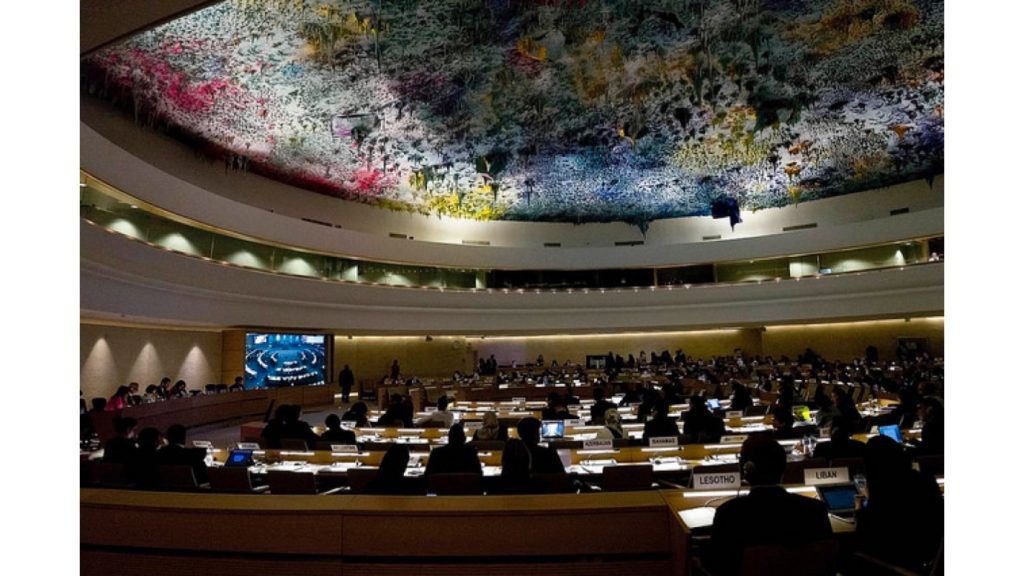Journalist Lucía Pineda Ubau: “They stole six months of our lives in prison”
After spending six months in prison as a political prisoner, journalist Lucía Pineda Ubau stood in front of a cellphone camera and began broadcasting live to the 100% News Channel audience from the OAS General Assembly in Medellin, Colombia. In a couple of minutes, more than three thousand people were watching on Facebook Live and celebrating the event. “Doing it now in freedom is a feeling of happiness,” says Lucia.
The last time she had reported live was on December 21, 2018, when she denounced that several weapons-wielding police patrols broke into the offices of the TV outlet 100% News Channel and illegally detained the channel’s director, Miguel Mora. She did not have time to report that they had also captured her. Almost six months later, on June 11 of this year, through a controversial Amnesty Law, the Nicaraguan authorities released Lucia and 50 media members and political prisoners who were unjustly imprisoned, often exposed to cruel, inhuman and degrading treatment.
Since then, the 45-year-old Nicaraguan-Costa Rican journalist has dedicated herself to “continue knocking the doors” of the international community and to “raise the voice so that they do not leave us alone in Nicaragua”. A couple of days after her release, she traveled to Costa Rica to reconnect with her family and meet with President Carlos Alvarado Quesada, Vice President Epsy Campbell and several officials, as well as with the media. Last week, in Medellín, she also aroused the interest of various Colombian and international media outlets that interviewed her extensively.
In this interview, given to the Institute on Race, Equality and Human Rights, Lucía Pineda comments on her experience in prison, the current situation of journalism in Nicaragua and her plans to put the TV outlet 100% News Channel to work again, from which she reported “for the whole little ball of the world.”
What motivated you to broadcast live after 6 months in jail and how did you feel at that moment?
I felt happy because it’s what I like, I love my career. I had already spent 6 months not doing live broadcasts. The last one was precisely reporting the occupation (of the 100% News Channel facilities) and imprisonment of our director, Miguel Mora. Doing it now in freedom is a feeling of happiness. I did not even have accreditation to enter (the OAS facilities), but I managed to write to the creditor and told him that I just got out of jail, and asked if they could credit me, and they did. Since I was there, in that scenario, where there were also representatives of different countries and the Blue and White delegation that came from Nicaragua, I decided to do the live broadcast on the Facebook fanpage of 100% News Channel. The main reactions I have seen are that people want me to start (reporting) again, but we are doing it slowly. The whole staff is not available yet, there are some who are in exile, we must wait for the government to return what they have confiscated.
As a journalist you are used to interviewing, but lately you have been the focus of the news. How have you assumed that role?
It’s a little bit complicated. It is true that (as a journalist) one is used to interviewing the actors of the news, but one never thinks to become an actor of the news, the protagonist of that news. Now I understand the interviewees. They ask some tricky questions sometimes and I have to know well what I am going to answer. Today they asked me what hatred was for me. I said that it is all that the dictatorship did to the people of Nicaragua, all the persecution of the press in Nicaragua, to judge innocent people. That is hatred, what the dictatorship did to the independent press for reporting the truth. It is kind of uncomfortable to be on the other side, but you have to know how to handle it.
A little over two weeks ago you were released. Why did you decide to travel to Medellín to advocate?
They invited me and I decided to go because I think that at the international level we have to keep on knocking on doors and raising our voices so they do not leave us alone in Nicaragua. So that they’re always looking out for us to conquer and recover something that we had already conquered, such as freedoms, democracy, and to continue to denounce that our media are still confiscated, including Confidencial and Esta Semana, by Carlos Fernando Chamorro. That there are still no guarantees of security for journalists to report in Nicaragua. To demand that there must be pressure on the Government to reconsider. Only the release (of political prisoners) has been achieved, and not of all of them, because there are still 86 in prison, and the different commitments that they signed in the dialogue with the Civic Alliance have not been fulfilled. People still cannot come out to protest or to demonstrate. Citizens don’t feel free and that has to be guaranteed, I think, under the surveillance of the international community.
You talked about the situation of journalists. In general, then, have freedoms of expression and the press in Nicaragua not yet been re-established?
No, there are still no freedoms. There is no guarantee that your constitutional right of expression, of information, of manifestation will be respected. There is always the threat that they will take you prisoner or that they can kill you. Nicaragua is not normal, it is not normal to be persecuted for reporting, it is not normal that two important media outlets are still held by the Sandinista police. It would be normal that we would be reporting, that we would not have been jailed, that we would not have our instruments of work be occupied, that they would not censor us.
There are many colleagues who have been making different efforts both within Nicaragua and in exile. The exile has been hard for them. I met with exiled journalists in Costa Rica and they are having a very bad time. There are some of them who have been working on construction, others that are working as security guards, others have been selling lottery or in stores, and in the midst of all of that they’re always active in their (informative) platforms making their own efforts. But it’s also needed to strengthen them in some type of financing so that those spaces are kept alive. If you help independent journalists at this time, they are defeating censorship. It is time to support the independent press.


You’ve been a journalist for twenty-five years. What has your experience been questioning the powerful?
The strongest experience I’ve had has been right now. I never thought that Daniel Ortega would take me or Miguel Mora, or any journalist, prisoner, only for reporting. Precisely because he was imprisoned in a dictatorship fighting for liberties. Rather, I thought that one day Arnoldo Alemán (President of Nicaragua in period 1997-2002) would take me prisoner, because there was a lot of questioning of Dr. Alemán, and he was very temperamental, he fought a lot with us journalists, he used to exploit anger and mistreat us. But he did not order to take us prisoners, he did not censure us, he did not go beyond the anger or to call me “la chilindrina” (as a nickname).
Daniel Ortega exceeded all levels, we went back in time. It is unfortunate that we have regressed to live those chapters that were lived in the time of Somocismo. Daniel Ortega does not like criticism, he does not like to be told the truth, that people express themselves with the truth in different independent media.
Was that what bothered Daniel Ortega so much?
That’s why they closed our media and imprisoned us. We always informed with the truth, with the same videos that the population filmed, because this has been the most documented repression. Precisely the people, the victims, filmed it. There is nowhere to get lost, the victims shared us their stories. The truth was told by the people, the truth was documented. The world already knows what happened in Nicaragua, that there was no attempted coup, that there was a social explosion and that the Government reacted brutally with a lot of repression that left more than 325 people dead and more than 2 thousand injured.
You spent six months in prison, how do you see that time in retrospect?
They stole six months of our lives there. I did not deny to God why I was there, but I asked him what my purpose was. God sets goals for you and in these events he gave us the mission of informing. And so we did, (God wanted us) to be brave, to be firm and committed to the people of Nicaragua. And so we acted, with obedience to that mission to inform. I began to reflect, to think there in prison and said: well yes it was worth it. It is worth saying the truth, it is worth doing journalism committed to the needs of the people of Nicaragua, a journalism that goes in favor of guaranteeing the Nicaraguan people needs, democracy, life, above all. When you report you save lives, and that’s what the independent press in Nicaragua did.
One feels satisfaction that you inform until the last moment. When I was taken to the preventive cell, I told Miguel: at least we closed with a flourish, I had time to launch the “last minute”. They wanted to silence us, but rather they raised our profile.
You said there was psychological rather than physical abuse …
The psychological thing is from the fact that they kept me isolated, without socializing. Human beings are social beings, and they locked me up for six months, they only opened the door three times a day to give me food and they took me out once a week to take one hour of sun, as if I were an animal. That’s psychological damage, it’s psychological torture. I tried to mitigate the impact of that torture, but I have known stories of other women who were alone for just 12 days and the idea of wanting to kill themselves came to mind. That never crossed my mind. My routine was of prayer, of praise, of biblical reading. I also exercised, 1500 jogs per day inside the cell, for the blood circulation. That’s what kept me standing: my faith, I never lost it. In my prayers I prayed for them and even forgave them, because I wanted to take care of my heart, I did not want to leave resentful or with hatred. But you do not forget everything they have done to you.
Do you have specific plans for the future?
We are seeing how to restructure, how to re-establish the newsroom, whether to do it in Nicaragua or in Costa Rica or to make a combination. The Facebook Live was a test, to warm up engines, but to retake the Channel during 24 hours, we’ll be working on it after we give ourselves a little time for us.



